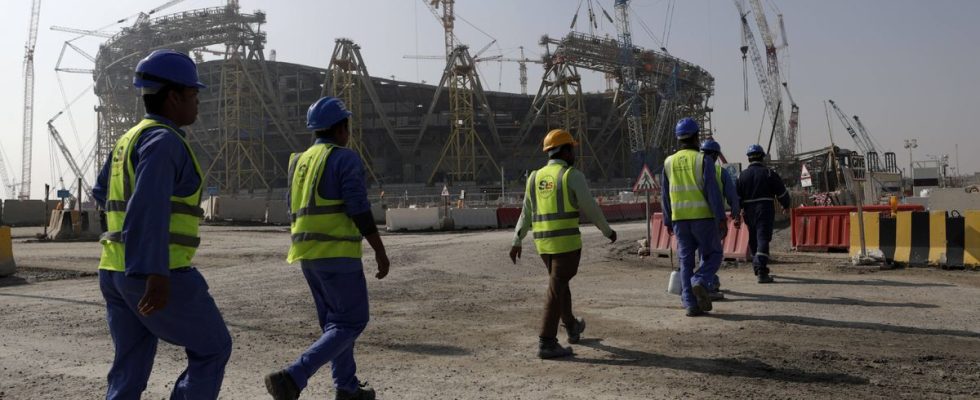“Too little has been done. » Abuses against migrant workers in Qatar persist a year after the FIFA World Cup, human rights organization Amnesty International charged on Thursday. Before, during and after the World Cup, the rich gas emirate faced a barrage of criticism over its human rights record and its treatment of migrant workers.
To address this, Qatar, with the help of the International Labor Organization (ILO), revised its labor laws, introducing a minimum wage and health and safety reforms, and dismantled its controversial system sponsorship “Kafala”. But for Steve Cockburn, director of Amnesty International’s Economic and Social Justice program, “Qatar’s continued failure to implement or strengthen these reforms seriously jeopardizes any potential benefits for workers.”
FIFA believes these reforms take “time”
“The government must urgently renew its commitment to protecting workers, while the International Football Federation (FIFA) and Qatar must agree reparations plans for all those who have suffered,” he added. Amnesty and other human rights groups have repeatedly called on Qatar and international football’s governing body to create a fund for the injured and families of workers who died on World Cup construction sites.
In a statement, FIFA said Thursday that one of its subcommittees continued to study the impact of the reforms undertaken by Qatar. “It is undeniable that significant progress has been made, but it is equally clear that implementing such far-reaching reforms takes time and that greater efforts are needed to ensure that they benefit all workers in the country” , added the football authority.
“Too little has been done”
Qatar has disputed the number of accidental deaths on construction sites at the World Cup, which human rights defenders say is in the thousands, and accused its detractors of practicing a policy of double standards. “Now, a year after the tournament, too little has been done to right all these wrongs, but the workers who made the 2022 World Cup possible must not be forgotten,” Steve Cockburn said.
Amnesty criticized the maintenance of the minimum wage at its 2021 level, despite the increase in the cost of living, and claimed that shortcomings persisted in terms of non-payment of wages and mobility of workers between different jobs. In a report released earlier this week, the ILO office in Qatar noted cases of retaliation by employers against workers who request to change jobs, including the cancellation of work visas. residence or filing false fleeing charges. However, this body stressed that complaints about cases of this type have “considerably decreased compared to previous years”.
Qatar welcomes ‘lasting legacy’ of World Cup
Reacting to Amnesty’s statement, the Qatar International Media Bureau, a government body, assured that the World Cup had “accelerated” social reforms in the country, leaving a “lasting legacy”. He added that the reforms introduced were “an example for other countries of how a system can be successfully overhauled” and that “existing reforms continue to be fully implemented.”
Saudi Arabia, which aims to host the 2034 World Cup, has been urged to make human rights commitments by leading rights groups. For Amnesty, “the abuses linked to the 2022 World Cup should serve to remind sports organizations that human rights must always be at the heart of decisions made when awarding events”.

